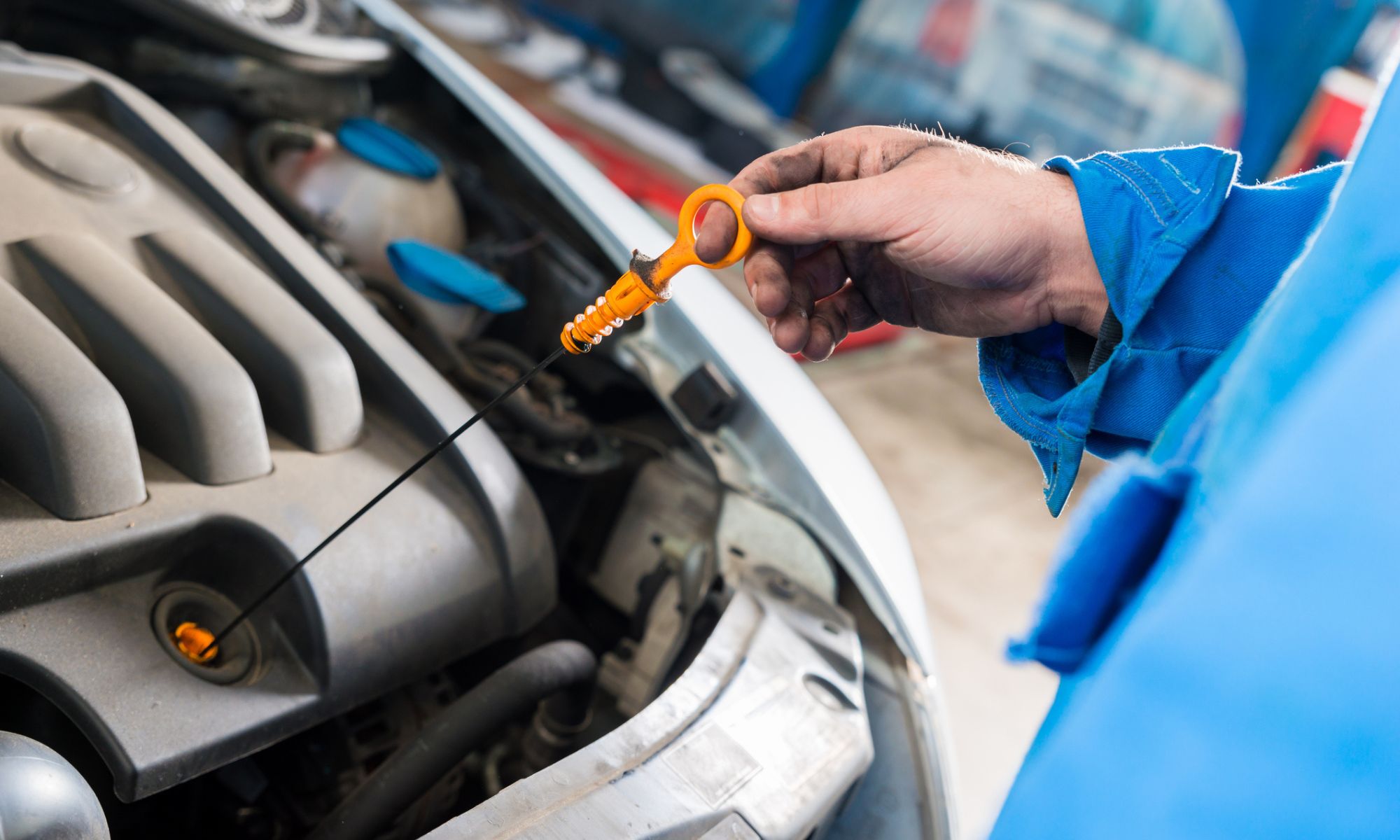Car Maintenance and Different Types of Engine Oil

Basic vehicle maintenance is an important aspect of car ownership. And while things like tire rotations and fluid checks may come to mind, essential car care really begins with oil changes. The importance of engine lubrication and the different types of engine oils can’t be overstated.
With this in mind, let’s explore what a car owner should know about maintenance fundamentals and engine oil types.
What is Engine Oil?
No matter if it’s called engine oil, motor oil, or engine lubricant, the right amount of this slippery substance performs a vital role inside your car’s internal combustion engine. In a nutshell, engine oil helps:
- Minimize friction
- Remove contaminants
- Protect engine components
- Regulate temperature
Some engine oils handle these tasks better than others, depending on the substances used within the oil and the type of engine. But before we dive into the different lubrication types, let’s review the importance of oil changes.
Why Does My Car Need an Oil Change?
Take a moment to think about what goes on inside a car engine. Controlled explosions cause the valves to open and close, the pistons to move, and the crankshaft to rotate. This happens at an ultra-rapid pace, and all with metal components. Engine oil is vital to this operation but eventually wears down or burns off. Engine oil in peak condition:
- Maintains Lubrication: Metal engine parts won’t last very long if there’s no oil to keep things running smoothly. Plus, the friction reduction from good-condition oil enables an engine to run more efficiently (which helps fuel economy and engine longevity).
- Removes Contaminants: Engine contamination comes from many sources, such as minute metal particles, dirt, and sludge (old oil that thickens into a gel-like substance). These impurities affect how well the engine oil works and impact engine function, including emissions. An oil change is the only way to eliminate these impurities.
- Prevents Engine Damage: All moving parts eventually deteriorate, and engine components are no different. Fresh oil limits (or at least delays) this inevitable engine wear and tear, including metal flecks separating from the cylinder walls and piston heads.
- Preserves Optimal Temperature: Excess heat joins poor lubrication as a significant cause of engine failure. These high temperatures stress metal components, which cascade into extra wear and tear. In addition, an overheated engine consumes more gasoline and produces less horsepower.
Other benefits of regular oil changes may need to be more obvious to car owners.
- Complies with Manufacturer Recommendations: A vehicle must be appropriately maintained for an automaker to honor the car warranty, especially regarding engine coverage. Following the recommended maintenance schedule (and keeping records) is the best way to avoid these issues. Most cars require an oil change every 5,000 miles (but some automakers have intervals of 3,000 miles or 10,000 miles).
- Preserves Resale Value: Whether dealing with a trade-in or selling a car secondhand, vehicle buyers love well-maintained vehicles. Regular oil changes and supporting documentation are the surest paths to maximizing your car’s value.
- Saves Time and Money: Oil changes are an inexpensive way to reduce the likelihood of costly and time-consuming engine repairs.
The Advantage plan from Endurance includes regular oil and filter changes as part of a complete vehicle maintenance program.
What Are the Different Types of Motor Oil?
Now that we’ve covered the important reasons for regular oil changes, here’s what to know about various types of engine oil:
Conventional Oil
Conventional engine oil is popular because it’s less expensive than other oil options and works with most vehicles. It’s also readily available at big box retailers, grocery stores, and other convenient places.
Conventional motor oil is best suited for moderate-use conditions with vehicles that don’t have high mileage. Otherwise, synthetic oil may be a better choice. In addition, conventional engine oil has a shorter lifespan (meaning more frequent changes are required), and the oil flow won’t move quickly in cold temperatures or low temperatures due to a higher viscosity (thickness).
Synthetic Oil
While synthetic oil has been around for almost a century, it became popular in the 1970s as automakers developed more sophisticated engines that required enhanced lubrication. Full synthetic motor oil often still uses crude oil as a base but incorporates highly modified chemicals to handle the extreme heat and additional lubrication needs of modern power plants. These additives also make synthetic oil less vulnerable to degrading and breaking down. Some synthetic oil is derived from natural gas.
A lower viscosity means synthetic oil is ideal for colder climates and with engines that are more sensitive to lubrication shortfalls during startup. But synthetic lubrication costs more when the time comes for an oil change. Take note that many premium-brand automobiles require synthetic oil.
Semi-Synthetic Oil
For those wanting better-performing engine lubrication without the higher cost of a synthetic, semi-synthetic oil is an attractive alternative. Sometimes called a blend or synthetic blend motor oil, this lubrication option has many of the additives that make full-synthetic appealing. But, a conventional oil base helps keep the price in check.
In terms of performance and longevity, a semi-synthetic oil splits the difference between conventional and synthetic oils. Check the owner’s manual to see if semi-synthetic is acceptable for your car.
High-Mileage Oil
Vehicles with high mileage (usually 75,000 miles or more) and older engines have unique requirements due to the potential for failing seals and oil leaks. High-mileage oil has special additives that help preserve these seals and minimize leaks. At the same time, special detergents work to dissolve engine sludge and other contaminants.
High-mileage oil may be formulated from conventional or synthetic oil, which affects the price. But only some vehicles are suitable for this lubrication; consult the owner’s manual or an experienced mechanic to see if this high-mileage oil is necessary and appropriate.
Other Engine Oils
There’s an oil for every engine, including some less-common applications.
- Diesel Oil: This lubrication is engineered for diesel engines, which typically generate more torque than gasoline power plants and undergo heavier strains.
- Racing Oil: High-performance power plants have unique lubrication requirements to accommodate the greater engine revs (revolutions per minute) that accompany competitions and track use.
Final Words About Engine Oils
Matching the right oil type to your vehicle is vital to maximizing engine protection and performance. The owner’s manual or a qualified mechanic will have this crucial information and other essential details, like what oil filter to use.
Further, you’ll want to know how driving conditions (like towing or off-road travels) can impact oil change frequency. Lastly, keep the oil change time vs. mileage factor in mind. In other words, no matter how few miles get added each year, you’ll want to change the oil at least annually.
The Value of Car Maintenance and Endurance
Regular maintenance, like frequent oil changes, is the best way to avoid breakdowns and costly car repairs. Endurance auto protection includes the Advantage plan with up to $3,500 in maintenance coverage, like car oil and filter changes, engine diagnostics, tire rotation, and one-time battery replacement.
Every Endurance auto protection plan also includes the freedom to choose from any ASE Certified mechanic, 24/7 roadside assistance, rental car reimbursement, trip-interruption services, a 30-day money-back guarantee, and flexible payment options. All new Endurance customers are eligible for one year of Elite Benefits by paying a small activation fee. This low-cost add-on provides access to tire services (including replacements), collision repair discounts, key fob replacement, and total loss coverage.
Discover the peace of mind that comes standard with an Endurance protection plan. Get a FREE quote by calling (800) 253-8203 or shop online now. Explore the Endurance blog for helpful articles about vehicle maintenance, car comparisons, DIY support, and more.













Since the age of 16, Keith has been immersed in the automotive industry, beginning his career by helping his dad fix vehicles at a young age. Keith now owns his own family-run, ASE Certified repair shop, A+ Autocare. At his shop, he focuses on building trusting relationships with his community through exceptional customer service. Read more about Keith.